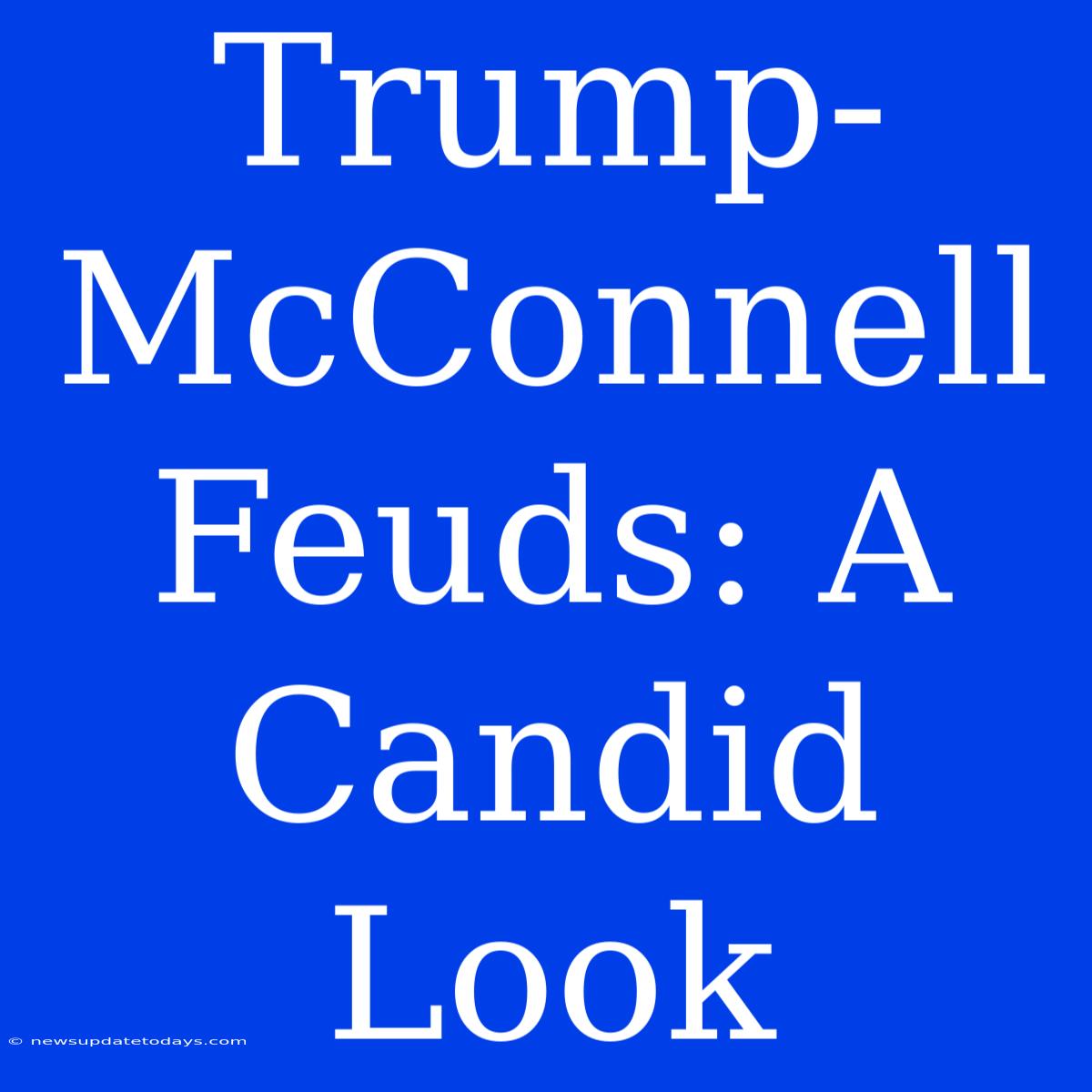Trump-McConnell Feuds: A Candid Look at the Republican Rift
The relationship between Donald Trump and Mitch McConnell, two titans of the Republican Party, has been anything but harmonious. Their ongoing feud, marked by public pronouncements and behind-the-scenes maneuvering, represents a significant rift within the party and has profound implications for American politics. This article offers a candid look at the nature of their conflict, its underlying causes, and its potential consequences.
The Roots of Contention: More Than Just Policy Differences
While disagreements on policy certainly exist, the Trump-McConnell feud runs far deeper than simple ideological clashes. Several key factors contribute to the animosity:
-
Leadership Styles: Trump's populist, confrontational approach starkly contrasts with McConnell's more traditional, strategic style. This fundamental difference in leadership philosophy creates inherent tension and makes collaboration difficult. Trump's preference for personal loyalty often clashes with McConnell's focus on institutional power and party unity.
-
2020 Election Aftermath: The fallout from the 2020 election remains a major point of contention. Trump's relentless claims of a stolen election, coupled with his pressure on McConnell to overturn the results, deeply fractured their relationship. McConnell's refusal to support these claims, while navigating the delicate balance of party loyalty and upholding democratic norms, further fueled the animosity.
-
Power Struggles: The battle for control of the Republican Party is another crucial element. Both Trump and McConnell aspire to wield significant influence over the party's future direction. This power struggle plays out in public pronouncements, endorsements, and strategic alliances within the party.
-
Personal Resentments: Beyond policy and power, personal resentments undoubtedly contribute to the feud. Public criticisms, veiled insults, and leaked conversations reveal a level of personal animosity that transcends mere political disagreement.
The Impact of the Feud: A Divided Republican Party
The ongoing feud between Trump and McConnell has far-reaching consequences for the Republican Party:
-
Weakened Party Unity: The constant infighting weakens the party's ability to present a unified front on key policy issues. This internal division undermines the Republicans' effectiveness in both legislative battles and electoral campaigns.
-
Erosion of Institutional Norms: Trump's challenges to democratic norms and McConnell's responses to them have raised concerns about the future of Republican governance and the party's commitment to democratic principles.
-
Implications for Future Elections: The feud's impact on primary elections and general elections is significant. Trump's continued influence over Republican voters creates a challenge for candidates who attempt to distance themselves from him, while those who align themselves with him risk alienating moderate voters.
Looking Ahead: A Lasting Rift or Potential Reconciliation?
The future of the Trump-McConnell relationship remains uncertain. While reconciliation appears unlikely in the near future, the possibility of a future rapprochement cannot be completely discounted. The overriding question remains: can the Republican Party overcome this significant internal division and present a cohesive vision for the country? The answer will have profound implications for American politics in the years to come. The continued monitoring of their interactions and the broader impact on the Republican Party is essential for understanding the future trajectory of American politics.

